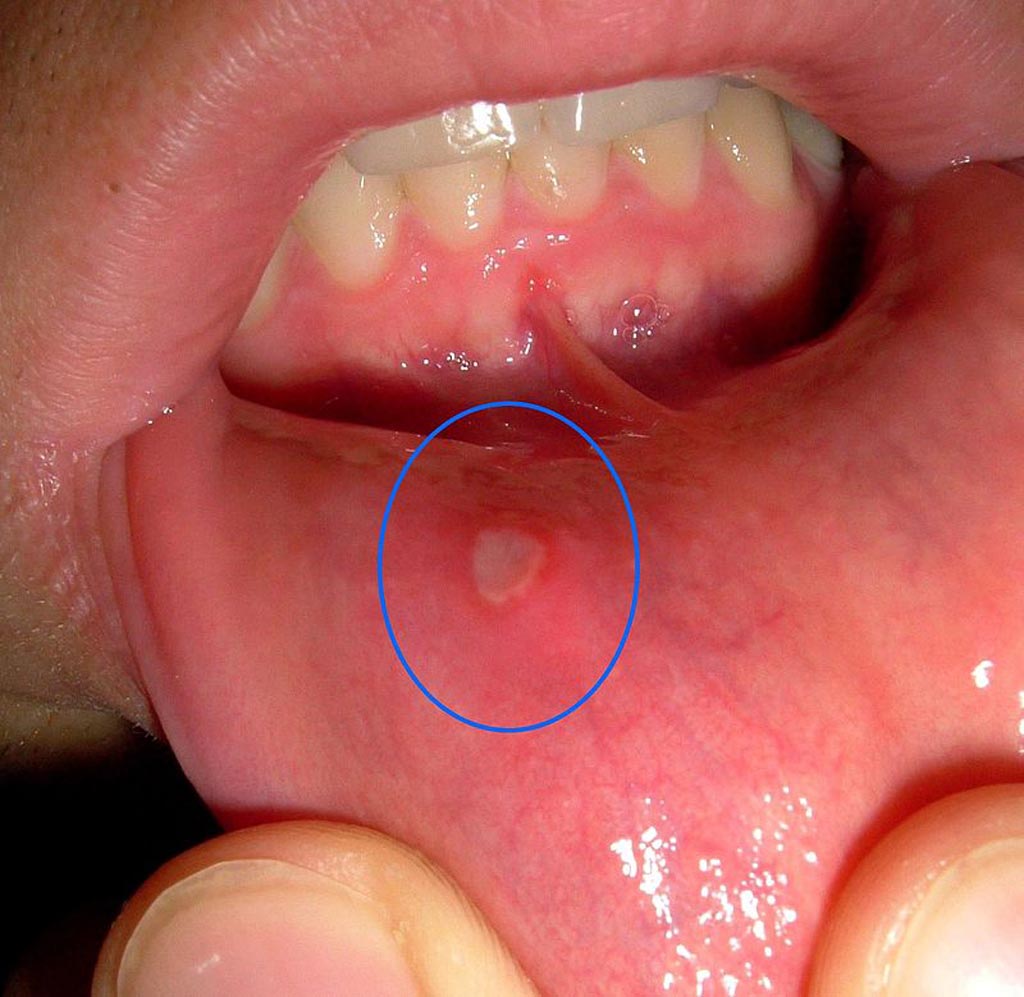Study Identifies Gene Variations for Mouth Ulcers
By LabMedica International staff writers
Posted on 18 Mar 2019
An extensive genome-wide association study (GWAS) identified 97 common genetic variations that predisposed people to suffer from mouth ulcers.Posted on 18 Mar 2019
Mouth ulcers are the most common ulcerative condition and encompass several clinical diagnoses, including recurrent aphthous stomatitis (RAS). Despite previous evidence for heritability, it is not clear which specific genetic loci are implicated in RAS.

Image: A mouth ulcer (in this case associated with aphthous stomatitis) on the labial mucosa (lining of the lower lip) (Photo courtesy of Wikimedia Commons).
To identify gene loci linked to development of mouth ulcers, investigators at the University of Bristol (United Kingdom) analyzed genetic data derived from over 450,000 participants in the U.K. Biobank and replicated these findings in over 350,000 participants in the U.S.-based data collection 23andMe.
Results obtained by this genome-wide association study estimated heritability at 8.2%. The study found 97 variants that altered the odds of developing non-specific mouth ulcers. Additional effect estimates from three independent cohorts with more specific phenotyping and specific study characteristics supported many of these findings. Computer-based functional analyses provided evidence for a role of T-cell regulation in the etiology of mouth ulcers.
"Currently, there are few satisfactory drug treatments for mouth ulcers as current medication options are non specific and can lead to side effects. The field has gone from very little genetic understanding of mouth ulcers to having up to 97 areas of the genome, which may provide an excellent basis for future research," said first author Tom Dudding, a graduate student researcher at the University of Bristol. "Importantly, our findings also show that several of the genes related to mouth ulcers are in pathways which are already targeted by drugs that are used to treat other diseases such as rheumatoid arthritis and psoriasis. There is the potential that drugs like these could be used to treat mouth ulcers, although further work is required to demonstrate this."
Details of the study were published in the March 5, 2019, online edition of the journal Nature Communications.
Related Links:
University of Bristol














